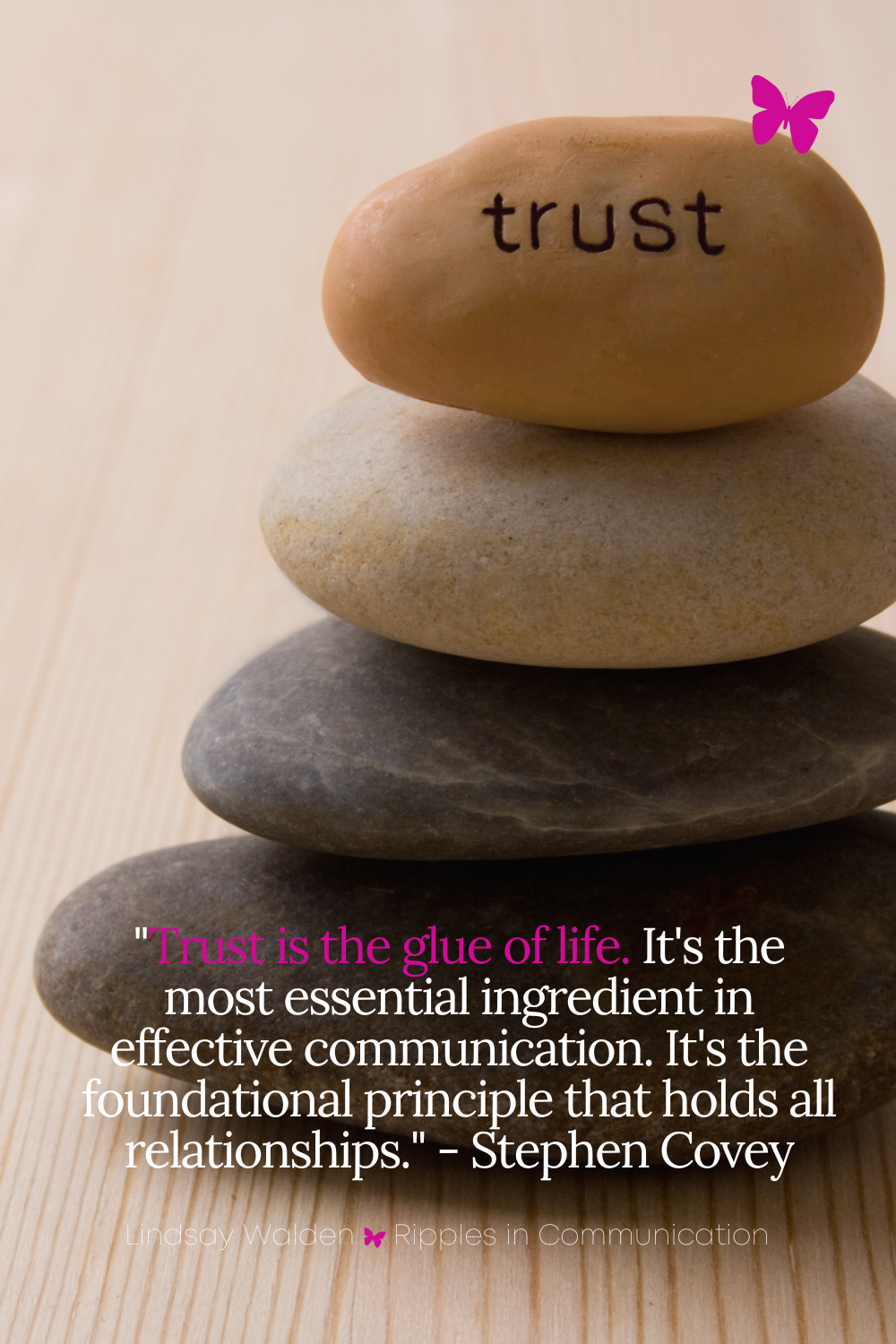9 Essential Tips for Building and Strengthening Trust in Your Relationship
Trust is a crucial aspect of any relationship, and when it’s broken, it can be difficult to regain. But even if trust hasn’t been broken, it’s important to continually work on strengthening it. In this blog post, I’ll provide tips for strengthening trust in a relationship that hasn’t experienced any trust issues, as well as tips for rebuilding trust if it has been broken.
Maintaining and strengthening trust in your relationship is a daily practice. With intention and self-awareness, your relationship will flourish with love and security. Sometimes trust is broken and when this happens patience and grace are vital, for both yourself and your partner. When trust has been broken it’s important to get to the root of the problem, regulate your emotions, use empathy and compassion, and take responsibility for your actions. Rebuilding trust takes time and effort, but with these tips, it’s possible to repair a relationship and create a stronger, healthier connection with your partner.
Have you gotten my FREE Relationship Communication Guide yet? Start building an authentic, conscious, and thriving relationship with your partner TODAY. Say goodbye to misunderstandings, conflicts, and missed opportunities for a deeper connection. These are the same tips and practical advice I give to my clients every day. With this guide, you'll be equipped to navigate any communication challenge and build a strong and fulfilling bond with your partner. Click the button below to enter your email address and I will send the guide to your inbox right away!
Strengthening Trust Without Broken Trust
Establish a System So Things Don't Get Off Track
One of the most important things you can do to maintain and strengthen trust is to establish a system that ensures you are both regularly checking in with each other. Schedule regular check-ins, carve out time for just the two of you to connect without distraction, and establish a protocol for how you will handle problems when they arise. This will help you both stay on the same page and avoid any misunderstandings or miscommunications.
Understand Your Communication Styles
It’s essential to understand each other's communication styles. Do you know each other’s love languages, apology languages, anger languages, and fighting languages? Understanding these can help you communicate more effectively, especially when you need to work through conflicts. Additionally, understanding each other’s attachment styles can help you understand how to show up for each other in a way that feels safe and secure.
Build a Strong Friendship
A strong friendship is a foundation for any successful relationship. Take the time to build a friendship with each other outside of your romantic relationship. This includes doing things together that you both enjoy, listening to each other's thoughts and feelings, and supporting each other in your personal and professional lives.
Use Empathy and Compassion
Empathy and compassion are crucial components of any healthy relationship. When your partner shares something vulnerable or difficult, make sure to listen with empathy, putting yourself in their shoes and understanding how they feel. This will help build trust, as your partner will feel heard, seen, and understood.
Be On the Same Team
It’s important to remember that you’re both on the same team. This means supporting each other, having each other's backs, and working together towards common goals. When you’re both invested in each other’s happiness and success, it’s easier to build and maintain trust.
Strengthening Trust After Broken Trust
Get to the Root of the Problem
If trust has been broken, it’s important to get to the root of the problem. This may involve having some difficult conversations, but it’s necessary to understand what led to the breakdown in trust.
Regulate Your Emotions
When discussing difficult topics, it’s important to regulate your emotions. This means taking a break if you need one, using breathing techniques to calm yourself down, and being mindful of your tone and body language. When you can regulate your emotions, you’ll be able to communicate more effectively, which can help rebuild trust.
Use Empathy and Compassion
Empathy and compassion are just as important when rebuilding trust as they are in maintaining it. It’s important to understand how your partner is feeling and to validate their emotions. When your partner feels heard and understood, it can help rebuild trust.
Look in the Mirror
It’s essential to take responsibility for your own actions and behaviors. This means looking in the mirror and acknowledging where you may not be showing up at your best. When you can take ownership of your actions, it can help rebuild trust by showing your partner that you’re committed to making things right.
The trust you build or rebuild is a vital part of your relationship, and it’s important to continually work on strengthening it. By establishing a system to check in regularly, understanding each other's communication styles, building a strong friendship, using empathy and compassion, and being on the same team you are able to connect with each other on a deeper level, showing each other the dedication you have towards the relationship, and avoiding potential issues before they happen. And if you are rebuilding the trust in your relationship, know it takes time. Oftentimes both persons are healing from past experiences that have to do with trust. Take it easy on each other, have patience, and seek out the supportive guidance of a licensed therapist to help navigate the healing process.







